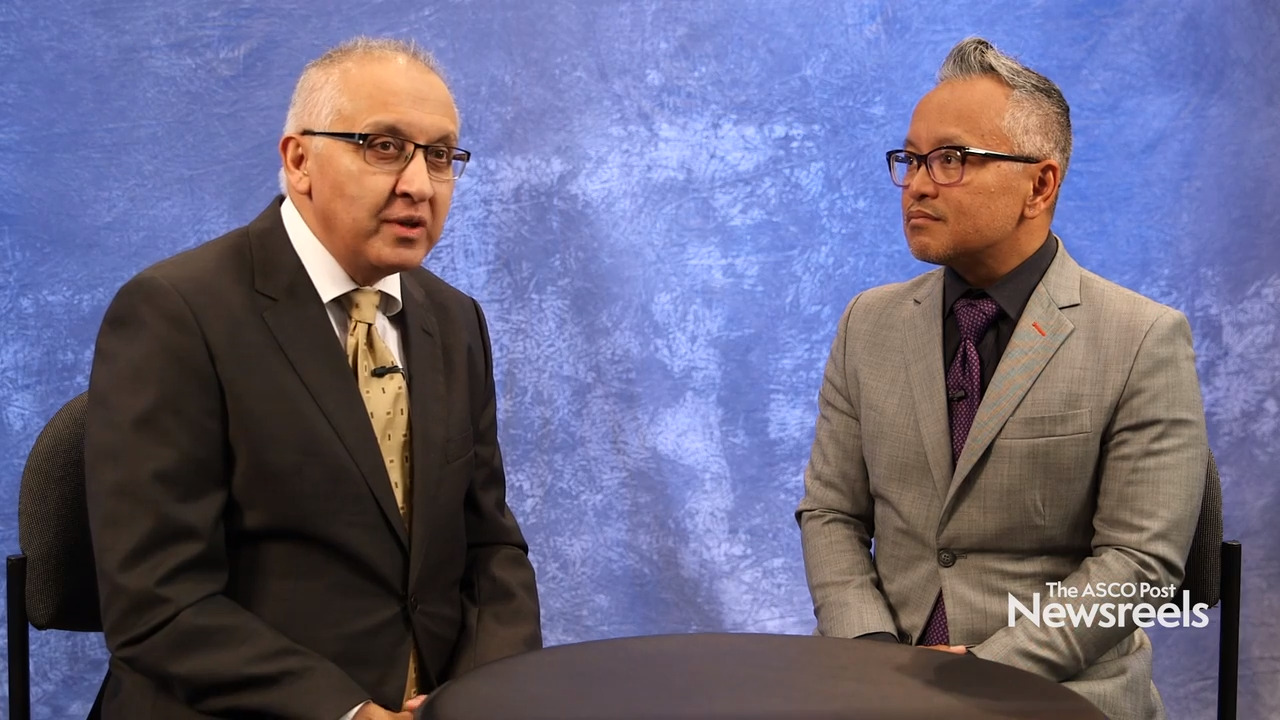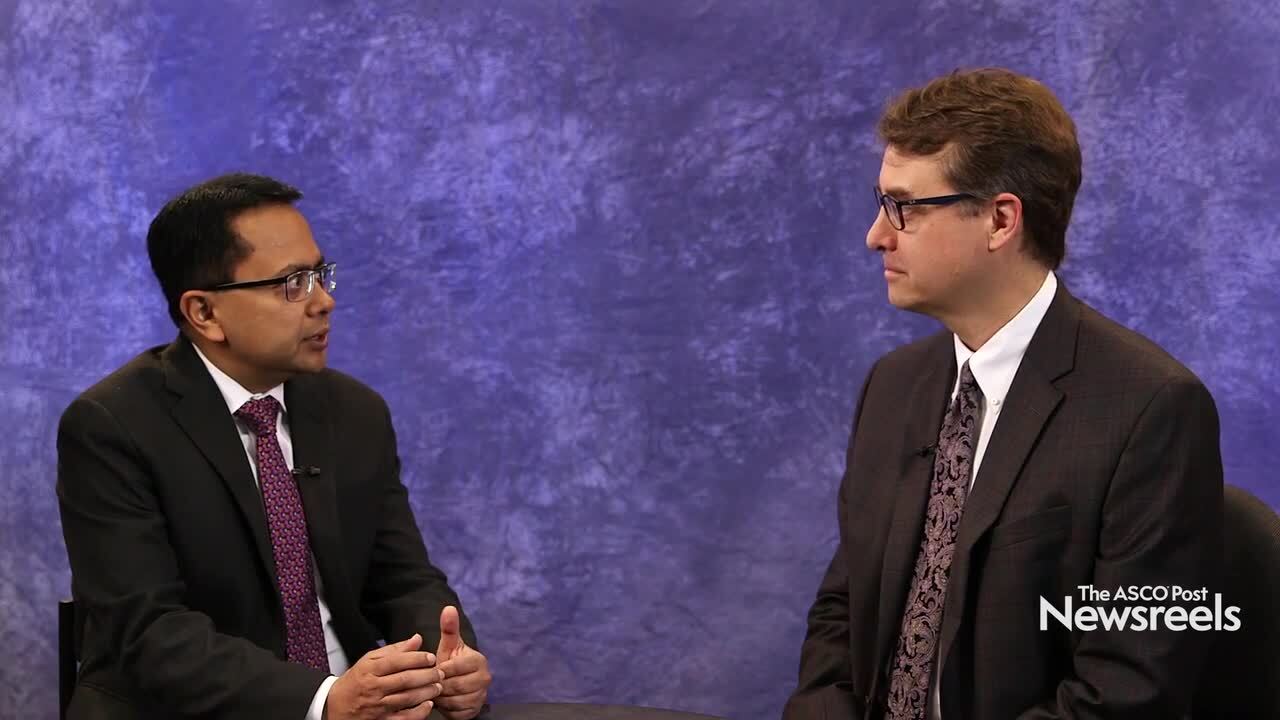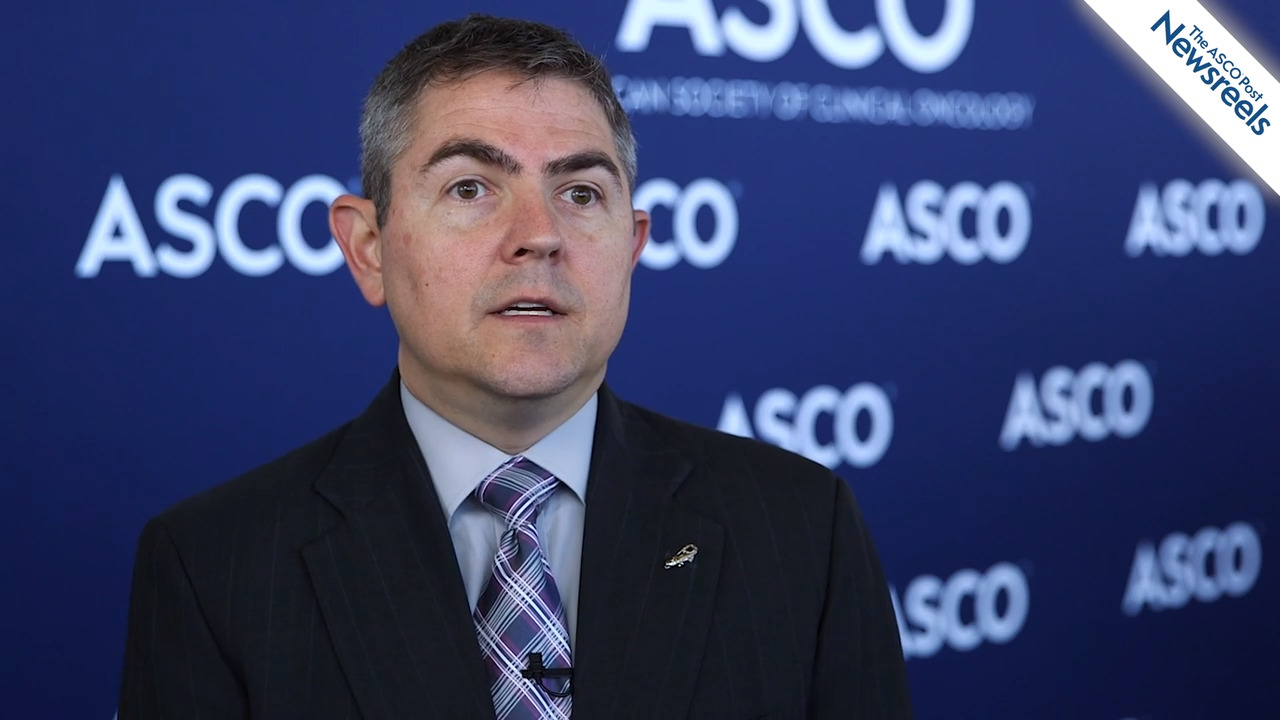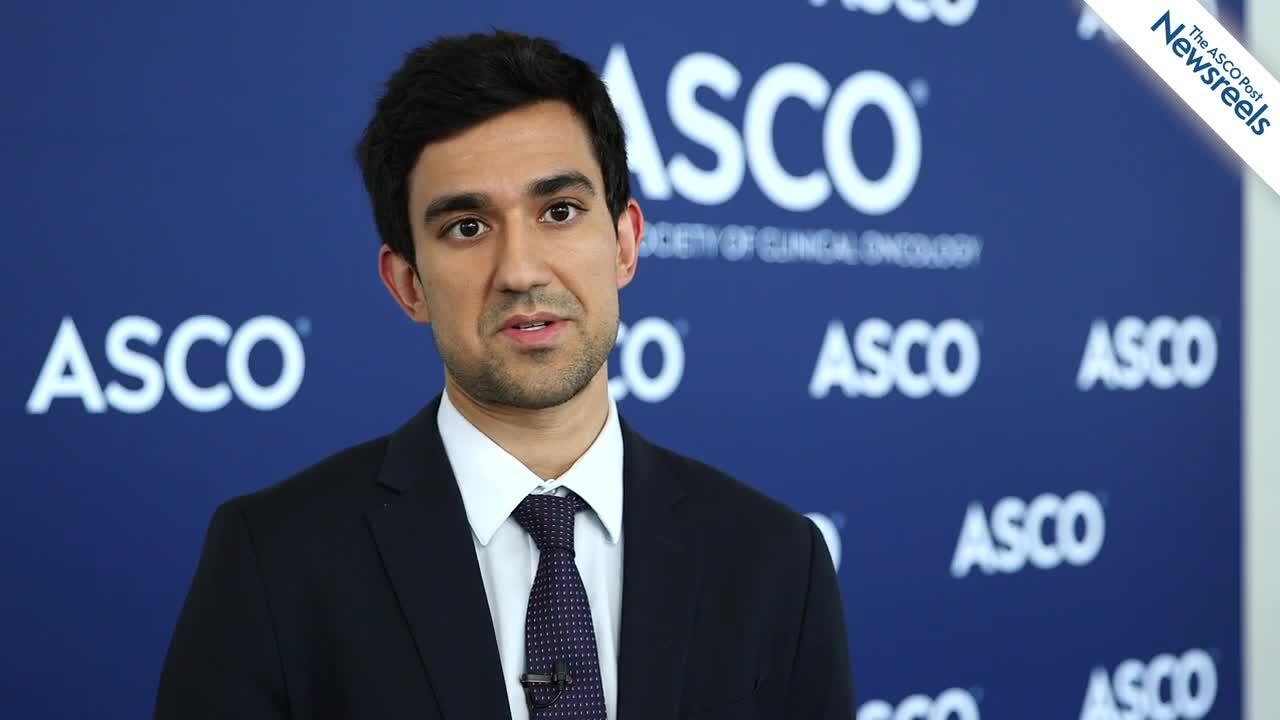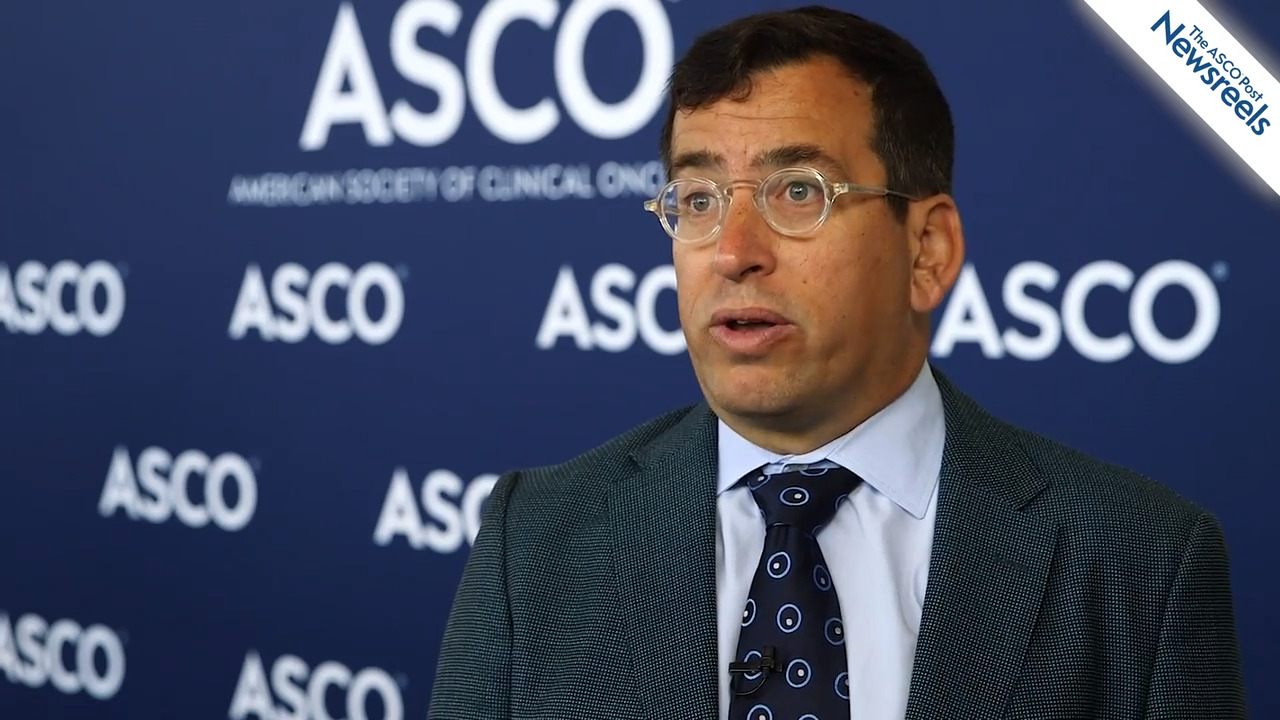Miriam Knoll, MD, and Richard J. White, DO, on Non–Small Cell Lung Cancer: Predicting Radiotherapy/Immunotherapy Treatment Outcomes
2019 ASCO Annual Meeting
Miriam Knoll, MD, of Hackensack University Medical Center, and Richard J. White, DO, of Allegheny Health Network, discuss improved overall survival among younger female patients with non–small cell lung cancer who have a lower comorbidity score, lower grade, private insurance, and treatment with intensity-modulated radiation therapy (Abstract 9024).
Don S. Dizon, MD, of the Lifespan Cancer Institute, and Mansoor Raza Mirza, MD, of Copenhagen University Hospital, discuss study findings that showed, compared with niraparib alone, niraparib plus bevacizumab improved progression-free survival in women with recurrent platinum-sensitive ovarian cancer (Abstract 5505).
Neeraj Agarwal, MD, of Huntsman Cancer Institute, University of Utah Health Care, and Thomas W. Flaig, MD, of the University of Colorado, discuss phase II findings on a novel predictive biomarker of response to the two accepted neoadjuvant regimens for muscle-invasive bladder cancer: methotrexate/vinblastine/doxorubicin/cisplatin and gemcitabine/cisplatin (Abstract 4506).
Thomas J. George, MD, of NRG Oncology and The University of Florida Health Cancer Center, discusses the initial phase II results from a clinical trial using total neoadjuvant therapy (including veliparib and chemoradiation treatment) for locally advanced rectal cancer (Abstract 3505).
Kamran A. Ahmed, MD, of the H. Lee Moffitt Cancer Center and Research Institute, reports on a trial in progress that is investigating whether treatment with atezolizumab plus hypofractionated radiation therapy will improve the objective response rate compared with atezolizumab alone in patients with recurrent, persistent, or metastatic cervical cancer (Abstract TPS5596).
Edward B. Garon, MD, of the David Geffen School of Medicine at the University of California, Los Angeles, discusses long-term survival data on patients with advanced non–small cell lung cancer treated with pembrolizumab and those with PD-L1 expressed in at least half of their tumor cells (Abstract LBA9015).
